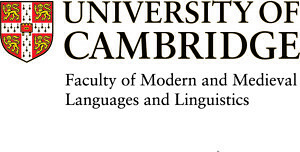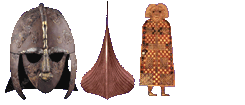| 13 Sep 2022 - 15 Sep 2022 | All day | G-R06/07, Faculty of English, Cambridge/Online | |
- Description
- Programme
- Call for papers
Description
Convenors
- Miranda Griffin (MMLL, University of Cambridge)
- Máire Ní Mhaonaigh (ASNC, University of Cambridge)
Keynote Speakers
- Hanna Vorholt (History of Art, University of York)
- Emanuele Lugli (Department of Art & Art History, Stanford)
Introduction
Although the word ‘landscape’ entered English in the sixteenth century, the concept of the land as it shapes and is shaped by human activity is much, much older. Much more than a backdrop to narrative, much more than a passive object of knowledge, much more than patches of space to be allocated and appropriated, landscape is revealed as playing an active part in narrative, power, and knowledge. A focus on landscape allows us to ask questions about the division between culture and nature; the boundaries between countries and cultures; the agency of the nonhuman and more than human; the role of the supernatural and the imagination in shaping history; and the ethics of landscape management, naming, and ownership.
This seminar series and follow-on conference comes at a time in which we are all, individually and collectively, rethinking our relationship to the spaces we live in and with, and our responsibility to them: we therefore anticipate a dynamic and stimulating series of conversations.
Themes
Our conference focuses on reading medieval landscapes in their multiple manifestations. We will explore themes emerging in the series of preceding seminars, as well as broadening the discussion to include aspects of other dimensions, spatial, temporal and theoretical.
Broad-ranging conceptually focussed papers, as well as explorations of specific case studies are welcomed, addressing the multifarious ways in which landscapes in the Middle Ages were read then and now. Issues addressed will include (but not be limited to):
- the importance of shared cultural concerns in understanding landscapes;
- the continual reconfiguration of landscapes through time and space;
- the centrality of land in their conceptualisation;
- the local and the cosmos;
- the rural and urban;
- the sacred and profane.
Methodologies will be informed by history and archaeology, texts and theory, languages and literatures, ecocriticism and ecologies, disability studies and onomastics (to name but some approaches).
One aim will be to illuminate the relationship between humans of the past and their environment in complementary ways. Another will be an interrogation of the affordances of different kinds of landscapes. The importance of various perspectives, simultaneous and continuous, will also be to the fore, included those occluded, deliberately erased and obscured. In discussing these and other subjects critically and in an open, nuanced manner, we seek to open up new ways of thinking about the shifting landscapes of the medieval world.
For information on topics discussed in the seminar series, see the blog posts on the various sessions.
Supported by:



If you have specific accessibility needs for this event please get in touch. We will do our best to accommodate any requests.
Programme
| All times are in BST | |
Tuesday 13 September |
|
| 12.45 - 13.15 | Registration |
| 13.15 - 13.30 | Opening Remarks
Miranda Griffin and Máire Ní Mhaonaigh (University of Cambridge) |
| 13:30 - 15:00 | Knowing landscapes Chair: Miranda Griffin (University of Cambridge) Luke Sunderland (School of Modern Languages and Cultures, University of Durham) Laura Fumagalli (Philosophy and Aesthetics, Universities of Augsburg and Munich) Elizabeth Tyler (English and Related Literature, University of York) |
| 15:00 - 15:30 | Break |
| 15:30 - 17:00 | The politics of landscapes Chair: Jane Gilbert (University College London) Marilynn Desmond (English and Medieval Studies, Binghamton University) Daniel Reeve (English, University of California, Santa Barbara) Stanislaw Banach (Faculty of History, University of Cambridge) |
| 17:00 - 17:15 | Break |
| 17:15 - 18:00 | Guest speaker Chair: Máire Ní Mhaonaigh (University of Cambridge) |
| 18.00 - 19.30 | Conference opening reception |
Wednesday 14 September |
|
| 9:30 - 10:30 | Keynote lecture Chair: Máire Ní Mhaonaigh (University of Cambridge)
Hanna Vorholt (Department of History of Art, University of York) ‘Earthquakes, hail, and fire: twelfth-century visions of the future’ |
| 10:30 - 11:00 | Break |
| 11:00 - 12:30 | Changing landscapes Chair: Elizabeth Tyler (University of York) Fiona Edmonds (Director of the Regional Heritage Centre, Lancaster University) | Online Debby Banham (Department of Anglo-Saxon, Norse and Celtic, University of Cambridge) Alex Hibberts (Faculty of History, University of Durham) |
| 12:30 - 14:00 | Lunch |
| 14:00 - 15:30 | The wild and unconquerable Chair: Roan Runge (University of Cambridge) Máire Ní Mhaonaigh (ASNC, University of Cambridge) Laura Bailey (Faculty of History, University of Cambridge) Sam Lasman (Corpus Christi College, Cambridge)
|
| 15.30 - 16.00 | Break |
| 16:00 - 17:30 | Active landscapes Chair: Luke Sunderland (Durham University) Neha Krishana Kumar (Faculty of Architecture, CEPT University) I Online Marilu Bosoms (Faculty of Divinity, University of Cambridge) Tom Hinton (Modern Languages and Cultures, University of Exeter) |
| 19.00 | Optional conference dinner: |
Thursday 15 September |
|
| 9:30 - 10:30 | Keynote Lecture Chair: Miranda Griffin (University of Cambridge)
Emanuele Lugli (Department of Art and Art History, Stanford University) ‘Territorial folds: landscapes and fashion in medieval Italy’ |
| 10:30 - 11:30 | Break |
| 11:00 - 12:30 | Landscapes of saints and pilgrims Chair: Sarah Bowden (Kings College London) Olha Romanova (Shevchenko Institute of Literature of the National Academy of Sciences of Ukraine) I Online Martha Bayless (English and Folklore, University of Oregon) Angus Warren (Yale University)
|
| 12:30 - 14:00 | Lunch |
| 14:00 - 15:30 | Mapping textual landscapes Chair: Henry Ravenhall (University of Cambridge) Fella Benabed (Department of English, Annaba University) I Online Beth Harper (Department of Comparative Literature, University of Hong Kong) I Online Giulia Boitani (Faculty of Modern and Medieval Languages and Linguistics, University of Cambridge)‘Godly landscapes and quantum perspectives. Dante and the experiment of Paradiso 33’ |
| 15.30 - 16.00 | Break |
| 16:00 - 17:30 | Otherworlds and cosmologies Chair: Matthew Lampitt (University of Cambridge) Rebecca Courtier (Faculty of Modern and Medieval Languages and Linguistics, University of Cambridge) Frey Kalus (St Catharine’s College, Cambridge) Sarah Kay (French Literature, Thought and Culture, New York University) (followed by short closing discussion) |
Call for papers
Hybrid conference: call for papers
From maps to chronicles, from sagas and songs to emerging cities, landscape plays an active part in shaping the medieval world. Much more than a backdrop to narrative, much more than a passive object of knowledge, much more than patches of space to be allocated and appropriated, landscape is a vital force in narrative, power, and knowledge. For this conference, which follows the seminar series of the same name, we invite contributions from researchers at all career stages working on medieval culture in any language.
Questions to be addressed include, but are not limited to:
- How are boundaries between countries and cultures defined in the Middle Ages?
- What role does landscape play in medieval narrative and memory?
- How is landscape represented in medieval visual art?
- How do medieval representations of landscape resonate with modern ecocriticism?
- What can medieval landscape tell us about the interactions between the natural and the supernatural?
- What are the ethics of landscape management, naming, and ownership in the Middle Ages?
- How can we speak of the agency of landscape in the Middle Ages and now?
- Who is visible in the medieval landscape – and who isn’t?
We welcome proposals for 20-minute papers; or a panel of shorter interventions.
Please submit an abstract of up to 250 words to shiftinglandscapes@crassh.cam.ac.uk by 9 June 2022.



